Research study aims to improve dementia assessments for diverse communities in Bristol

UWE Bristol is launching a research project aimed at transforming the assessment and diagnosis of dementia for people from three minority ethnic communities in Bristol.
People from the three communities (Chinese, Caribbean and South Asian) are at high risk of developing dementia but less likely to be diagnosed than people from white communities. In addition, they are often diagnosed at a later stage in the illness and can miss out on important treatment.
The 18-month research project, funded by the National Institute for Health and Care Research, will see academics team up with community organisations representing Chinese, Caribbean and South Asian populations in Bristol. They will work to identify how community organisations can work together with the NHS to improve the current assessment process.
Professor Richard Cheston, who is co-leading the study, said: “We want to tackle these problems by improving the way assessment and diagnosis currently happen. First, we will help people in these three communities to recognise the symptoms of dementia and to improve their understanding of the illness.
“Second, we will work together with the NHS and GPs to enable people to either refer themselves for an assessment or for a community organisation to be able to do this for them. Local dementia clinicians will then work together with staff from the community organisations to carry out the assessment.
“Third, we will identify clear standards for assessment, diagnosis and treatment that will mean that people understand what they can ask for from services.”
According to Alzheimer’s Research UK, 982,000 people are estimated to be living with dementia in the UK. With around 18 per cent of the UK population from a minority ethnic community, researchers say it is important that dementia services are made accessible to all and that potential inequalities between communities are eliminated. In Bristol, around 230 people from Chinese, Caribbean and South Asian communities are living with dementia.
Professor Cheston, a dementia research specialist who is co-leading the research with community researcher Emily Choi from the Chinese Community Wellbeing Society, added: “We expect that the new pathway resulting from this project will lead to more people being correctly diagnosed as having a form of dementia and that these diagnoses will take place earlier in the illness. This will mean that people have more time to adjust to it and have more treatment options open to them.
“As this is a new pathway, we want to find out what obstacles and barriers there may be in changing the assessment process in this way. We also want to know whether the staff from the NHS and from community organisations feel comfortable making the assessments and whether patients and their families feel it is an improvement.”
The three Bristol community organisations working on the project are Chinese Community Wellbeing Society, Dhek Bhal and Bristol Black Carers. Also part of the project are Bristol Dementia Wellbeing Service, a partnership between Devon Partnership NHS Trust and the Alzheimer's Society.
Related news
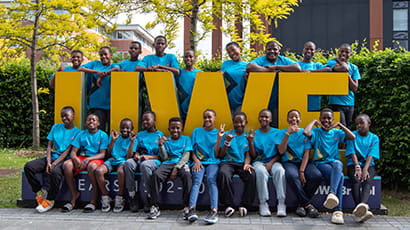
09 September 2025
Project Zulu choir celebrates another record-breaking tour
Nearly £37,000 was raised during three unforgettable weeks of the 2025 Project Zulu choir tour – setting a new fundraising record since the tour began.
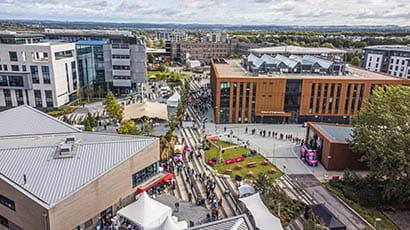
09 May 2025
UWE Bristol among first universities in UK to introduce sanitary waste bins in male toilets
UWE Bristol is among the first universities in the UK to introduce sanitary waste bins in male toilets for the disposal of incontinence products.

19 March 2025
Professor plays key role in formation of Europe’s first conference for minoritised life scientists
A professor from UWE Bristol has played a leading part in organising Europe’s first conference supporting scientists from marginalised and underrepresented backgrounds.
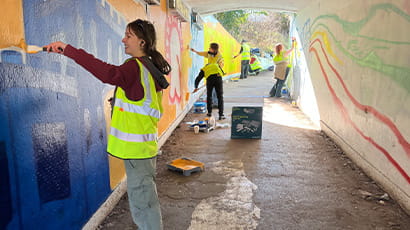
07 March 2025
UWE Bristol and Ashton Park School transform urban landscape near university campus
Students bring creativity and a splash of colour to a well-used city underpass by painting a new mural celebrating diversity and inclusivity.

06 March 2025
Inspiring UWE Bristol alum fights for equality in her sport to empower other women
A UWE Bristol alum who became the UK's first female to compete in Burmese bareknuckle boxing has shared how competing in a male-dominated sport has motivated her to empower other women.

06 February 2025
Opinion: ‘We’re ensuring people have access to diverse images for healthcare’
Flicking through the pages of academic medical textbooks back in 2022, our team spotted a surprising omission: a stark absence of images of health conditions on darker skin tones.
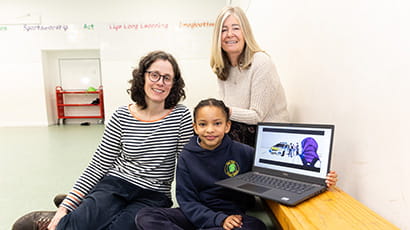
03 February 2025
Groundbreaking UWE Bristol project based on children’s lived experiences of racism in the UK set to transform police training
UWE Bristol researchers have worked with over 1,000 primary-aged children to explore everyday experiences of racism to inform future police training.

30 January 2025
Women exercising in gyms face barriers including body image and harassment, study finds
Women exercising in gyms often feel judged for their appearance and performance, leading to a persistent sense of inadequacy, according to a new study.
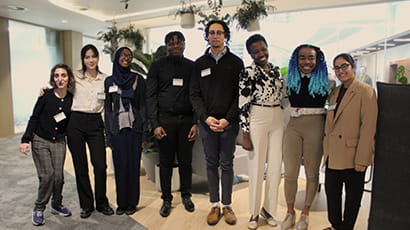
22 January 2025
Talent collaboration programme UWE Futures expands to support diversity in Bristol's legal and creative sectors
UWE Bristol's talent programme, UWE Futures, which offers paid work experience to global majority students, has expanded in its second year to include more legal firms and a leading organisation in Bristol’s creative sector.

15 January 2025
Pupils’ work produced in anti-racism lessons to be displayed at Bristol Cathedral
Work produced by school children in response to specially designed lessons on anti-racism will go on show at an exhibition at Bristol Cathedral.
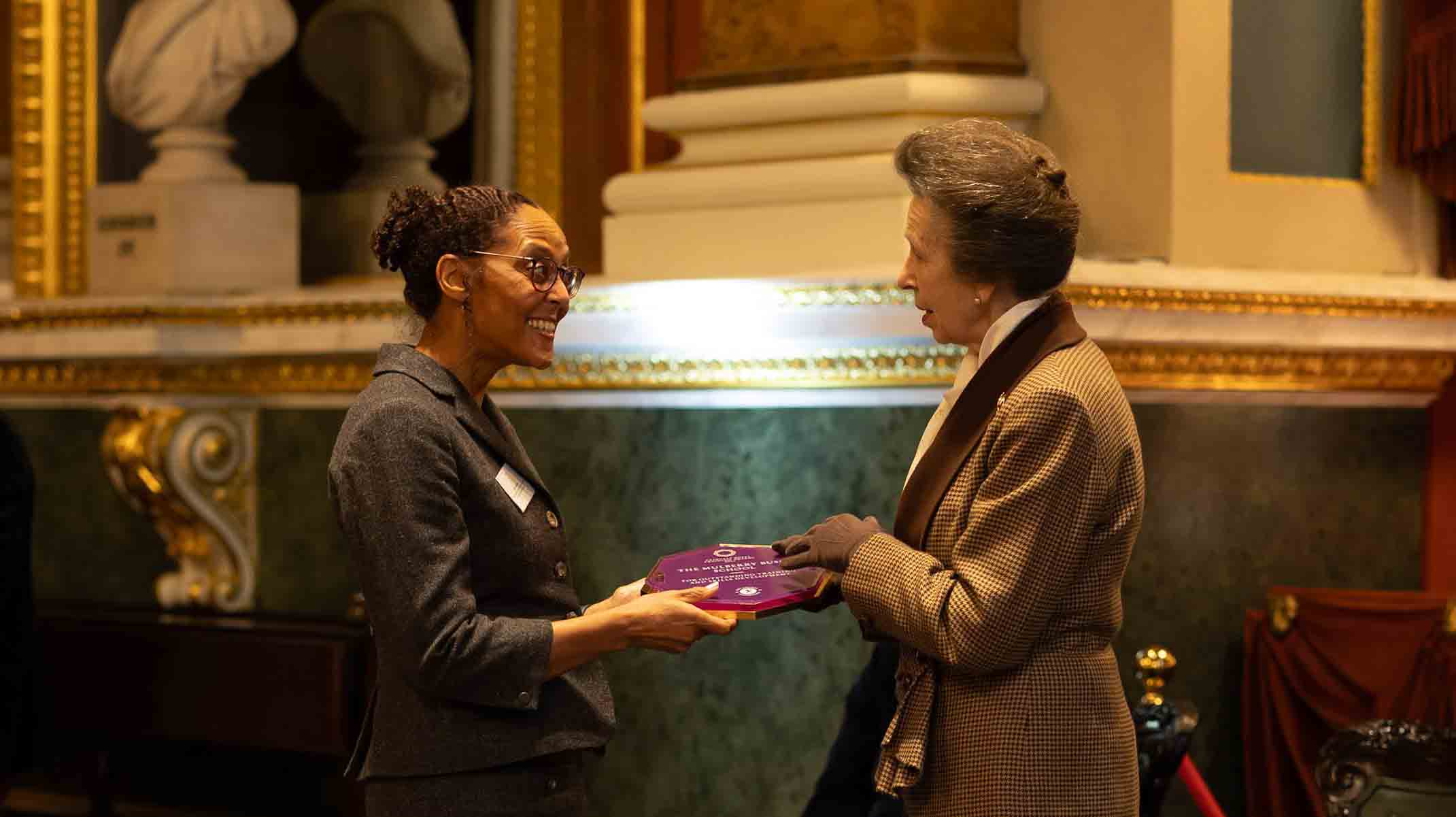
17 December 2024
‘One of a kind’ course accredited by UWE Bristol recognised with Princess Royal Training Award
A foundation degree accredited by UWE Bristol has been awarded a prestigious City & Guilds Princess Royal Training Award.

02 December 2024
Project led by UWE Bristol launches new resources to tackle racism and discrimination in healthcare education
A range of inclusive training and learning resources to tackle racism and discriminatory behaviour in healthcare have been launched by UWE Bristol.
You may also be interested in

Media enquiries
Enquiries related to news releases and press and contacts for the media team.
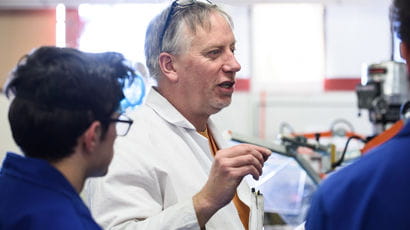
Find an expert
Media contacts are invited to check out the vast range of subjects where UWE Bristol can offer up expert commentary.

19 May 2022
New toolkit launched to improve dementia care for South Asian people
People living with dementia in South Asian communities will benefit from improved culturally sensitive support due to a newly launched online toolkit.






